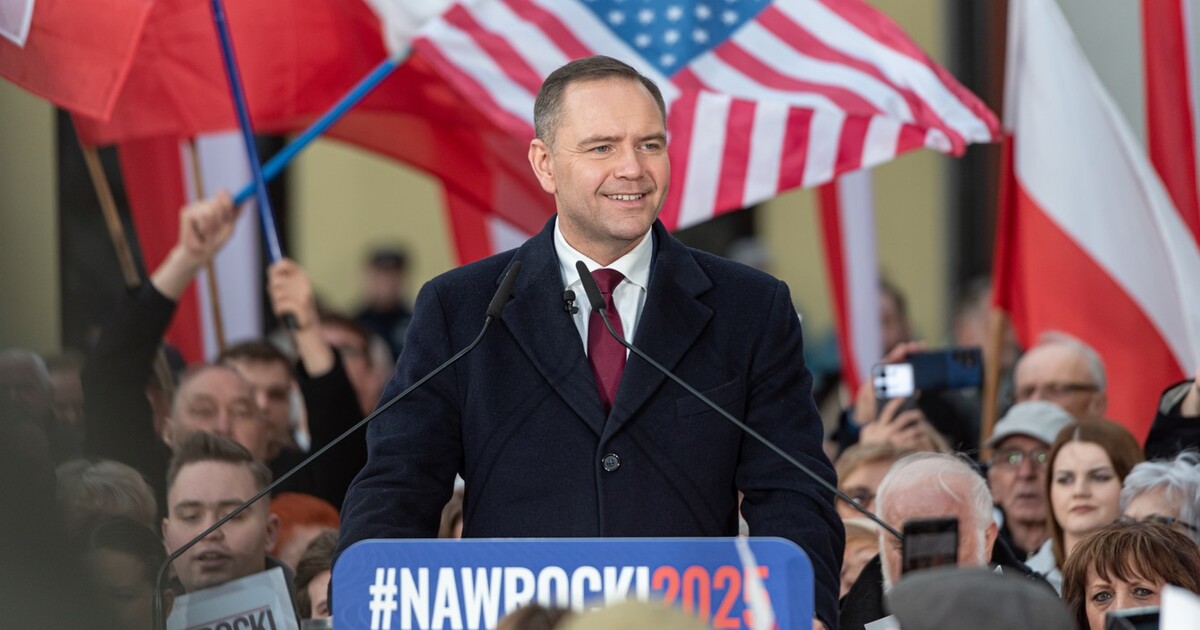Between Dependence and Deterrence: Recasting the Transatlantic Relationship
The Pentagon has it right: Mutual interest and common sense, not pseudo-intellectual exercises in civilizational splittism, ought to govern the U.S.’s relationship with Europe.
June 4, 2025

The Trump administration is not known for tiptoeing around. The U.S. State Department’s recent pronouncement questioning whether Europe can still be considered a reliable “civilizational ally” of the United States was a particularly pronounced attack in the direction of Europe’s predominantly liberal societies.
With that as background, one would expect that U.S. Secretary of Defense Pete Hegseth, a former soldier and TV presenter who has had a very poor start in his new job, would quite literally be on the communications war path with U.S. allies.
The Hegseth surprise: Partnership, not preaching
And yet, the statements he just made on a very important occasion, the 2025 Shangri-La Dialogue in Singapore, were remarkable — both in terms of their explicitness on policy and their surefootedness in terms of preserving a wooing, diplomatic tone at all times.
“We are not here to pressure other countries to embrace or adopt policies or ideologies,” Secretary Hegseth said. What followed was even more remarkable coming from the Trump administration:
“We are not here to preach to you about climate change or cultural issues. We’re not here to impose our will on you. We are all sovereign nations. We should be free to choose the future we want to build. We respect you — your traditions and your militaries — and we want to work with you where our shared interests align, for peace and prosperity.”
Throughout, Hegseth struck a tone of respect and partnership in Singapore. And the Shangri-La event is too important and defining an occasion on the international conference circuit to assume they were just made for the moment — and for this audience.
But the preacher brigade at the U.S. State Department
The Defense Secretary’s remarks could not diverge more sharply from the recent harsh rhetoric of other U.S. officials, who have taken a more confrontational stance — particularly toward Europe and its democratic practices.
Most members of the European Union — Hungary being a potential exception — do not fit the administration’s favored profile.
Just consider that the U.S. State Department — after all, not a Philosophy Department at a conservative university — is planning to establish a new office dedicated to monitoring “natural rights” and so-called “free speech backsliding” in Europe.
The illusion of moral authority
The announcement comes as President Trump has vowed to end the era of moral grandstanding and has significantly softened Washington’s posture toward authoritarian regimes, including by such astonishing moves as dissolving counter-intelligence bodies monitoring Russian cyber warfare and other espionage activities in the United States.
Savor the irony: While the State Department echoes the rhetoric of a 1960s-era superpower hectoring client states, the Defense Department takes a different approach — challenging its partners to meet shared expectations around deterrence and collective security.
Why can’t Trump claim victory where it’s due?
The strange thing about President Trump, who faces a wave of “taco” (= Trump always chickens out) ridicule is that he does not claim victory where he legitimately could — and instead goes on an indiscriminate war path that often seems totally illogical on issues he will not win in the end.
Specifically, Trump has succeeded in pressuring the proud nations of Europe to reassess their defense strategies and boost military spending in response to the war in Ukraine — something no previous U.S. administration has achieved to the same extent.
Focus on Germany and the SPD
Germany, in particular, faces a steep path forward on defense spending. Still grappling with the legacy of 1945, the country often appears paralyzed by historical guilt and, at times, projects an air of intellectual superiority that frustrates its allies.
Like many European nations, Germany’s political left and right often adopt a posture of moral self-righteousness. Their traditional approach to Russia almost reflexively tends toward appeasement.
It is always cloaked in rhetoric about risk reduction, which usually translates into the avoidance of taking any principled stand, even on the matter of national self-defense.
The SPD, the junior partner in the Merz government, is the best proof of that mindset. It still has to come to understand that its stance plays into Russian propaganda narratives and aligns, however unintentionally, with Vladimir Putin’s vision of a weak and submissive European Union.
The U.S. Defense Department’s deterrence imperative
Yet, beneath these ideological clashes lies a more fundamental issue: Europe’s strategic posture in a rapidly changing world. Here, the divergence between the State and Defense Departments becomes especially consequential.
The Defense Department’s strategy focuses on empowering Europeans “as partners, not dependents” — enhancing their capacity to work more effectively alongside the United States.
This approach reflects a pragmatic understanding of the need for a balanced deterrence posture in order to safeguard the values central to Western civilization, as expressed in the U.S. Declaration of Independence: Life, liberty and the pursuit of happiness.
In contrast, the State Department’s tone not only comes across as condescending but is counter-productive as it draws Europe back into a mire of strategic self-delusion.
Foggy Bottom’s reliance on lofty, abstract notions of balance-of-power politics frequently fails to align with on-the-ground realities.
Conclusion: Time for the center to lead
Europeans are being challenged to reclaim strategic autonomy. That means to create and sustain decision-making spaces that move them beyond their current passive role in shaping history.
The self-righteous posture of reactionary forces both on Europe’s left and right threatens to trap the continent in a cycle of stagnation and regression. It will fall to pragmatic centrists to reestablish Europe as an active, forward-looking player on the global stage.
In this context, it is incumbent upon the Europeans to reshape the consequences of the Trump administration, which under President Trump’s influence often comes across as pure provocation, into an opportunity.
For that to happen, Europe must move beyond passivity and toward a more assertive deterrence posture.
Takeaways
The Pentagon has it right: Mutual interest and common sense, not pseudo-intellectual exercises in civilizational splittism, ought to govern the U.S.’s relationship with Europe.
Hegseth: "We are not here to preach to you about climate change or cultural issues. We’re not here to impose our will on you. We are all sovereign nations. We should be free to choose the future we want to build."
Hegseth: "We respect you — your traditions and your militaries — and we want to work with you where our shared interests align, for peace and prosperity.”
U.S. Defense Secretary Pete Hegseth’s Shangri-La remarks could not diverge more sharply from the harsh rhetoric of other U.S. officials, who have taken a more confrontational stance — particularly toward Europe and its democratic practices.
Europeans are being challenged to reclaim strategic autonomy. That means to create and sustain decision-making spaces that move them beyond their current passive role in shaping history.
It is incumbent upon the Europeans to reshape the consequences of the Trump administration, which under President Trump’s influence often comes across as pure provocation, into an opportunity.


